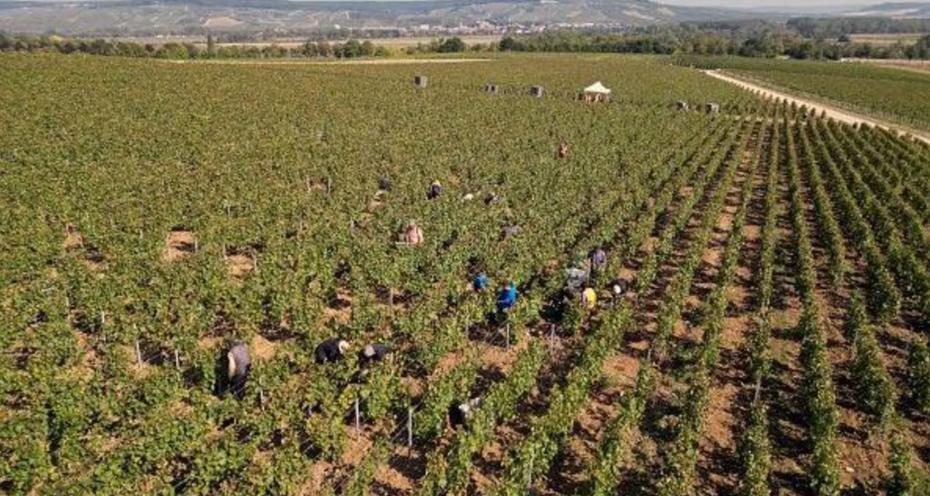A human trafficking trial underway in Reims has lifted the lid on disturbing working conditions faced by undocumented migrants in France’s lucrative champagne industry, with harrowing testimonies revealing a cycle of exploitation, abuse, and neglect.
At the centre of the case are three accused—a woman from Kyrgyzstan, a Georgian man, and a French national—suspected of trafficking and exploiting over 50 migrant grape-pickers during the September 2023 harvest.
The victims, mostly from West Africa, were found living in filthy and cramped quarters in Nesle-le-Repons, deep in the champagne-producing region southwest of Reims.
Investigations revealed that the migrants, aged between 16 and 65, were lured via a WhatsApp message circulated within the Soninke community in Paris. The message promised “well-paid work” in the vineyards, but instead, the workers ended up in squalid conditions, forced to work long hours with minimal breaks and little pay.
“They shouted at us in Russian and crammed us into this broken-down house, with mattresses on the floor,” said 44-year-old Kanouitié Djakariayou. “There was no clean water, and the only food was a bowl of rice and rotten sandwiches. I never thought the people who made champagne would put us up in a place which even animals would not accept.”
The workers laboured for 10 hours a day with only 30 minutes for lunch and were transported to the fields in trucks without seats. They had no formal contracts and were paid far below legal standards. According to the prosecution, the living areas were outdoors, toilets were filthy, showers barely worked, and the electrical setup was hazardous.
“What we lived through there was truly terrible. We were traumatised by the experience. And we have had no psychological support, because when you have no papers, you have no rights either,” testified 45-year-old Doumbia Mamadou.
The 44-year-old woman leading the operation, identified as Svetlana G., owned Anavim—a labour agency supplying vineyard workers.
She and her two associates are facing charges of human trafficking, employing undocumented migrants, withholding proper wages, and housing vulnerable individuals in unfit conditions. They risk up to seven years in prison and heavy fines if convicted.
State prosecutor Annick Browne described the conditions as “a serious breach of the occupants’ safety, health and dignity,” while migrants’ lawyer Maxime Cessieux said the accused had shown “a total disregard for human dignity.”
The case has sparked wider scrutiny of labour practices in the €6 billion champagne sector, where around 120,000 seasonal workers are needed each year. Though some champagne houses rely on third-party agencies for labour, unions argue this allows exploitation to flourish unchecked.
“It should not be possible to harvest the grapes of champagne using human misery,” said Jose Blanco of the CGT union. Some unions are now calling for legal reforms that would revoke the “champagne” label from producers found to be using illegal labour, even indirectly.
While the Comité Champagne, the industry's main body, insists such abuse is rare and quickly addressed, it has joined the trial as a civil plaintiff, citing damage to the brand’s reputation caused by “unacceptable practices.”
